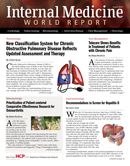Risks of Marijuana Analyzed by National Institute on Drug Abuse
The risks of marijuana are greatest for teen users, according to an analysis of current data from the National Institute on Drug Abuse published June 5, 2014 in The New England Journal of Medicine.

The risks of marijuana are greatest for teen users, according to an analysis of current data from the National Institute on Drug Abuse (NIDA) published June 5, 2014 in The New England Journal of Medicine.
The researchers aimed to synthesize and understand data as marijuana enters the political landscape across the country. The report details the demographic most likely to use marijuana: 12% of people 12 years or older reported use in the past year, rates additionally having increased among adolescents. The researchers acknowledge that studies both do and do not find harmful side effects when studying marijuana, but chose to pursue the evidence regardless.
The first adverse effect listed in the analysis is the risk for addiction. Among those who try marijuana, nearly 9% will become addicted. The number jumps to approximately 16% for those who start using marijuana as teenagers and between 25-50% among those daily smokers. There is also strong evidence to support the existence of marijuana withdrawal, including symptoms such as irritability, sleeping difficulties, dysphoria, craving, and anxiety. Marijuana also appears to be related to mental illness, especially among individuals with a genetic predisposition.
“As compared with persons who begin to use marijuana in adulthood, those who begin in adolescence are approximately 2 to 4 times as likely to have symptoms of cannabis dependence within 2 years after first use,” the researchers write.
For teenage users, whose endocannabinoid systems in the brain are still developing, continued marijuana use can predict the later use of other illicit drugs. Exposure to tetrahydrocannabinol (THC), the active ingredient in marijuana, in animals has shown a recalibration of the reward system in the brain during exposure to other drugs. Adults who smoked marijuana as teenagers have shown impaired neural activity and reduced functionality in the prefrontal cortex and hippocampus. However, one study showed some effects of marijuana smoking were reversed after 4 weeks of cessation.
The researchers note marijuana has negative effects on school performance and lifetime achievement as well as higher risk of motor-vehicle accidents.
The researchers also discuss marijuana’s relation to cancer and other illnesses, commenting a positive association between marijuana smoking and cancer cannot be definitively dismissed. As marijuana has been linked to inflammation of the large airways, increased airway resistance, and lung hyperinflation, the long-term effects may not be completely insignificant. Nevertheless marijuana has also been reported to treat symptoms of glaucoma, nausea, AIDS-associated conditions, chronic pain, inflammation, multiple sclerosis, and epilepsy.
The report recognizes the limitations of existing marijuana studies. Studies on smoking marijuana while pregnant, as well as examining the rising concentration of THC in marijuana, have not been numerously conducted.
“It is important to alert the public that using marijuana in the teen years brings health, social, and academic risk,” lead author and NIDA Director Nora D. Volkow, MD, said in a statement. “Physicians in particular can play a role in conveying to families that early marijuana use can interfere with crucial social and developmental milestones and can impair cognitive development.”
